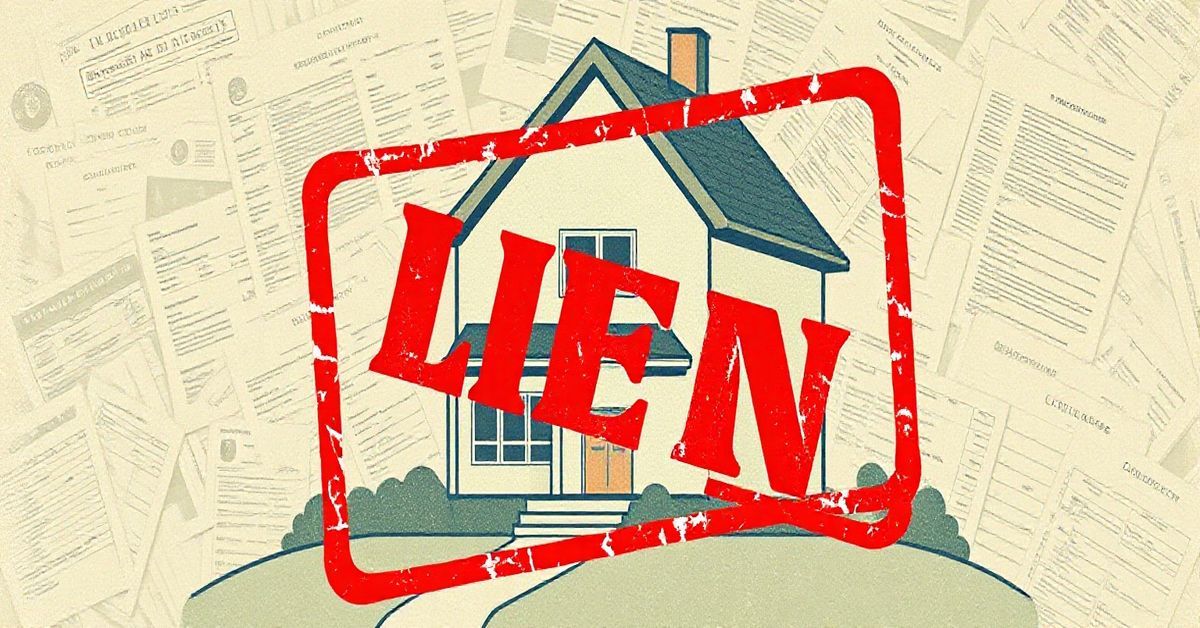Understanding Liens: A Simple Guide
Liens might sound scary, but they’re really just a legal way for someone you owe money to secure that debt. Think of it like this: you borrow money to buy a car, and the lender puts a “hold” on the car until you pay off the loan. That “hold” is basically what a lien is. It’s a claim on your property. Let’s dig a little deeper.
What’s the Deal with Liens?
At its core, a lien is a security measure. It’s there to make sure someone gets paid back when they’re owed money. It’s a legal “marker” on your property. If you don’t fulfill your financial obligation, the lienholder can take action. That action can mean the sale of your property. The money from the sale goes towards paying back your debt.
Different Kinds of Liens
Liens aren’t one-size-fits-all. Here are some of the most common types you might encounter:
- Tax Lien: This is what happens when you owe back taxes to the government (federal, state, or local). The government can place a tax lien on your property, like your home. This acts as a public notice that you owe taxes, and it must be settled before you can sell or refinance your property.
- Mortgage Lien: When you buy a house with a mortgage, the bank or lender holds a lien on your house until you pay off the mortgage. It’s a voluntary lien, as you willingly agree to it when borrowing money.
- Mechanic’s Lien: If you hire a contractor to work on your house and don’t pay them, they can put a mechanic’s lien on your property. This is to ensure they get paid for the work they completed.
- Judgment Lien: If you lose a lawsuit and the court orders you to pay money to the other party, the other party might place a judgment lien on your property if you don’t pay up.
How Does a Lien Actually Work?
Here’s a simplified rundown:
- Debt Incurred: You owe money to someone (a bank, the government, a contractor, etc.).
- Lien Placed: The creditor (the one you owe money to) places a lien on your property. This often involves filing paperwork with the appropriate public records office.
- Public Record: The lien becomes a public record, which means anyone can find out that your property has a lien against it.
- Debt Resolution: You pay the debt, the lienholder files paperwork to remove the lien (releasing it), and the lien is satisfied.
- Foreclosure (If Necessary): If you don’t pay the debt, the lienholder may be able to force the sale of your property to recover the money you owe.
Example Scenarios
Let’s look at a couple of real-world examples:
- Example 1: Home Renovation: You hire a contractor to renovate your kitchen. They complete the work, but you refuse to pay. The contractor can place a mechanic’s lien on your home. You might find it difficult to sell or refinance your home until you pay that debt and get the lien released.
- Example 2: Unpaid Taxes: You neglect to pay your state income taxes for a couple of years. The state can put a tax lien on any of your assets – bank accounts, your vehicle, or your house. You won’t be able to sell your house easily until you settle the back taxes and remove the lien.
Who is Affected by Liens?
Anyone who owes money can potentially have a lien placed on their property. Liens can affect both individuals and businesses. It’s not only for big debts. Even small unpaid bills can lead to a lien. It’s a powerful legal tool creditors have to protect their money.
How Liens Relate to Other Concepts
- Security Interest: A lien is a form of security interest. This means the creditor has a legal right to seize or sell your property to cover the debt if you default on your obligation.
- Collateral: The property that is subject to a lien acts as collateral. The creditor can seize the collateral if you do not pay.
- Foreclosure: When you can’t pay the debts against your property, the lienholder can begin foreclosure proceedings. This might lead to selling your property to recover the money.
Tips for Handling Liens
- Pay Your Debts on Time: This is the most obvious and the best way to avoid having liens put on your property.
- Communicate with Creditors: If you’re having trouble paying a debt, contact the creditor. They may be willing to work out a payment plan with you and avoid putting a lien on your property.
- Check Your Credit Report: Liens can appear on your credit report, negatively impacting your credit score. Check your credit reports regularly. If there are errors, be sure to get them corrected.
- Get Professional Advice: If you are facing a lien or believe one might be imminent, consider consulting with a tax professional or lawyer.
Common Misconceptions
- Liens Are Only for Big Debts: Liens can be filed for even small debts, so don’t underestimate their impact.
- Liens Disappear on Their Own: Liens don’t just go away. You must pay the debt and ensure the lienholder releases the lien formally.
- Liens Don’t Affect My Credit Score: Liens, especially tax liens, can have a major negative impact on your credit score.
The Importance of Understanding Liens
Understanding what liens are and how they work can help you protect your assets. It allows you to take proactive steps to avoid them. It also gives you knowledge to act if you find yourself facing one. Being financially aware and managing your debts responsibly can significantly reduce your risk of dealing with liens.

